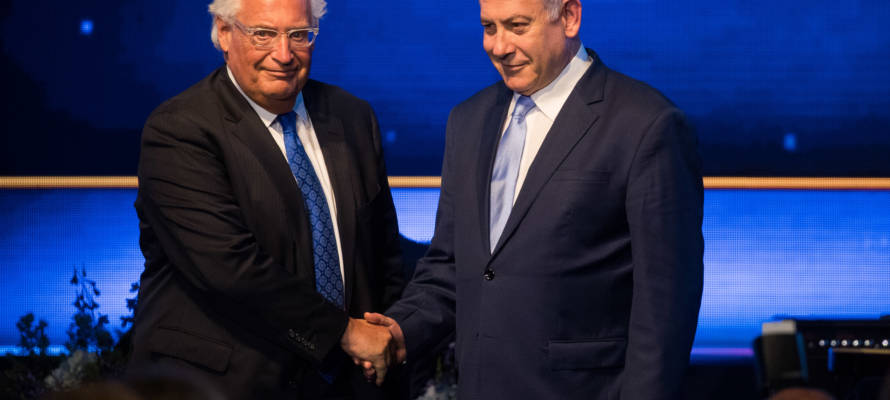American Ambassador to Israel says word ‘suspension’ chosen carefully so as not to rule out future annexation and application of sovereignty in Judea and Samaria.
By United With Israel Staff
Israel has agreed to put its plan for extended sovereignty over Judea and Samaria off the table for the time being in order to finalize a historic peace accord with the United Arab Emirates. Prime Minister Benjamin Netanyahu, however, insists sovereignty will still happen, notwithstanding the delay.
“Just as I promised I would bring peace with the Arab world…I also said that I would apply sovereignty over parts of Judea and Samaria. There is no change in my plan to apply sovereignty in Judea and Samaria in full coordination with the US. That hasn’t changed,” Netanyahu said regarding the announcement Thursday about Israel’s peace accord with the United Arab Emirates.
“I always said that the implementation of the sovereignty plan would only take place in coordination with the US. Declaring sovereignty without US support would at best be worthless, and worst would seriously hurt the settlements and the State of Israel,” the prime minister said.
US Ambassador to Israel David Friedman, known as a friend of the Jewish communities of Judea and Samaria, explained on Thursday why the Trump administration was in favor of the Israel-UAE peace accord even though it meant dropping the sovereignty issue for the time being.
“The words in the joint statement were carefully chosen. It is no coincidence that the term ‘suspension’ was used. Sovereignty is not off the table, and I am convinced that one day the Israeli communities in Judea and Samaria will become part of the State of Israel,” Friedman told Israel Hayom.
“We published the vision of peace and we are committed to it, including to the element that turns some of the territories of Judea and Samaria into Israeli ones,” he said. “Sovereignty is suspended, but I do not want to specify a date or say for how long.”
At a White House press briefing where Friedman was present, President Donald Trump said the sovereignty move was “not off the table, no. It’s something they’ve discussed but Israel has agreed not to do that, more than just off the table, they’ve agreed not to do it, and I think that was very important and I think it was a great concession by Israel.”
However, Trump also said that while sovereignty was off the agenda for now, “I can’t talk about sometime in the future, that’s a big statement, but right now it’s off the table.”
Oded Revivi, a top leader in the Yesha Council, an umbrella organization of municipal councils of Jewish settlements in Judea and Samaria, has been a strong advocate of extended Israeli sovereignty over the Jewish biblical heartland.
While a number of others are disappointed by Netanyahu’s delaying of the sovereignty move in order to establish a peace agreement with the UAE, Revivi disagrees.
In a tweet on Thursday, he said, “The Israeli agreement to postpone the application of Israeli law in the Jewish settlements in Judea and Samaria is a fair price.”
Israel’s Ambassador to the UN, Danny Danon tweeted that he welcomed the “important agreement” and said as ambassador he had visited the UAE and cooperated with them in the fight against the Iranian [nuclear] program.
“At the same time, this diplomatic achievement must not harm the application of #soverignty – a step that must take place immediately,” said Danon, a member of Netanyahu’s Likud Party.
Netanyahu also thanked other Arab leaders, saying their efforts were helping to build peace.
“I thank Egyptian President al-Sisi, and the governments of Oman and Bahrain, for their support of the historic peace treaty between Israel and the United Arab Emirates, which is expanding the circle of peace and will be good for the entire region,” the prime minister said.
